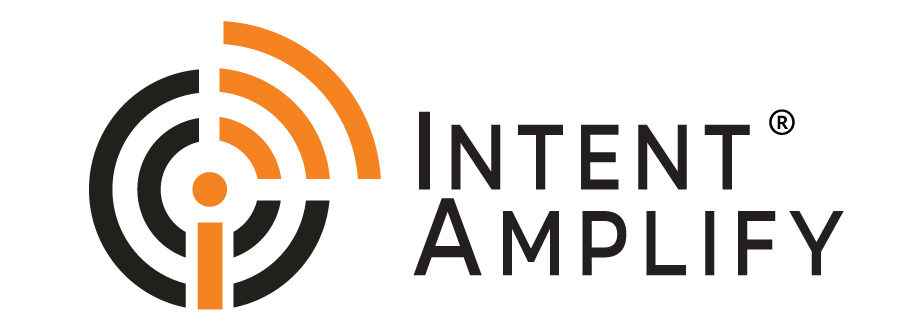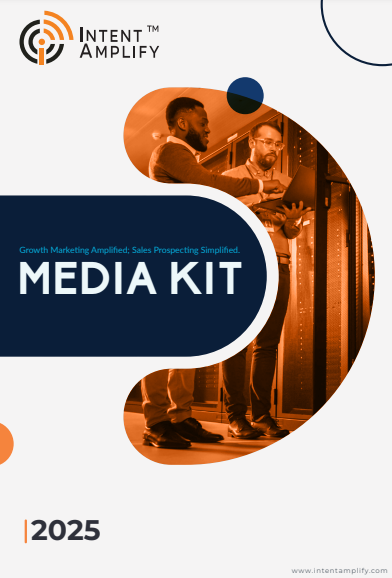
Ultimate Guide to Choosing Business Lead Generation Companies
- Last updated on: March 20, 2024
Every successful business thrives on high-quality leads. According to a HubSpot report, modern marketers consider lead generation to be a top priority. While many businesses may prefer an in-house team to generate leads, many others would be better off outsourcing at least some if not all of their lead-generation efforts to an agency that specializes in this. This blog aims to be a comprehensive resource for businesses seeking business lead generation companies to partner with.
What are B2B Lead Generation Companies?
B2B Lead generation firms specialize in gathering information on potential consumers and business clients, which they then offer to enterprises in search of fresh prospects. These companies employ various strategies to organize and refine the data, ensuring that their clients receive contacts that align with their specific needs.
Strategies for Effective Lead Sourcing
In B2B, lead generation entities and digital tools source their leads through a mix of AI-driven analysis and the efforts of specialized sales development representatives. Some big firms in this sector focus on providing leads that are not just numerous but also well-qualified for sales opportunities.
What is Lead Generation and Its Role in the Sales Funnel?
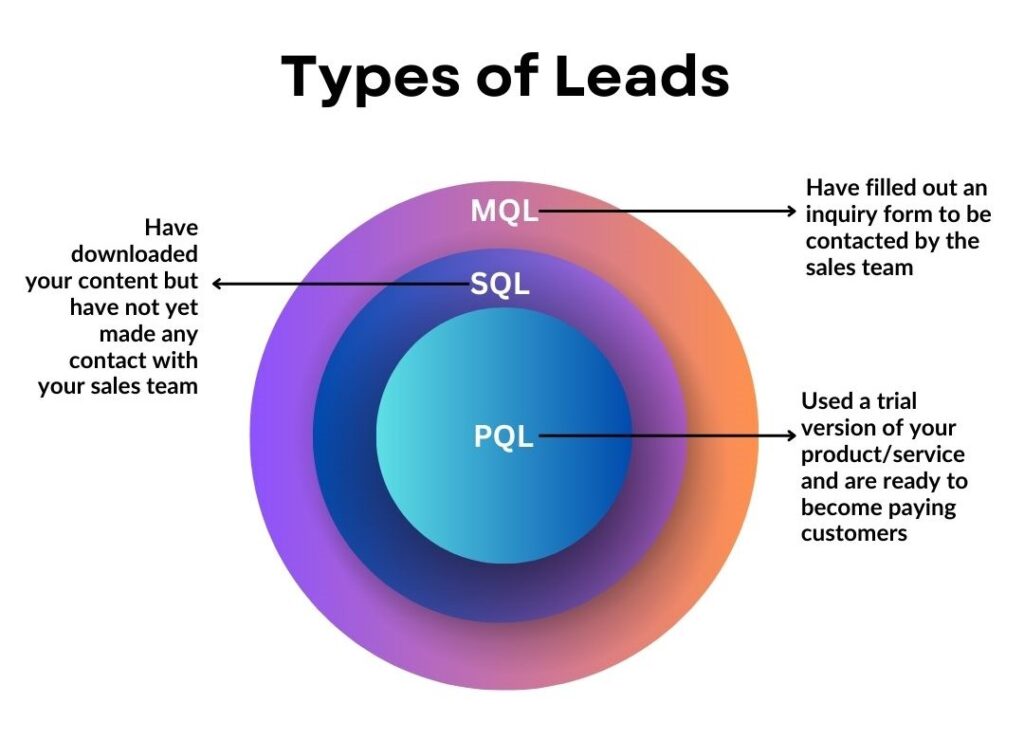
Lead generation is the central aspect of a sales funnel for many B2B companies for whom their thousands of dollars worth of products or services are less likely to be bought by web visitors directly from the website. Hence, directing the prospects through the sales funnel, informing and educating them about their offering, sending them regular reminders reminding them of their need, and step-by-step bringing them to the purchase decision – provides them with a path to gradually convert into customers.
Leads are usually brought in through email marketing targeted at a curated list before reaching out to qualified leads directly via salespeople. This is the ideal process that is followed and that yields maximum results.
Why is lead generation important for business growth?
Simple answer: Without leads, a company will not have the opportunity to convert prospects into customers.
Full-length answer: Lead generation is a sophisticated process. The process involves identifying the right people by prospecting them per the client persona. Once the ideal profile has been established, these profiles are targeted primarily via email marketing and also through methods such as social media posts and social media ads. The idea is to find the best-fit prospects that will convert.
Now why is a Proper Lead Generation Process Important to Business?
Well, firstly, without a lead generation process, cold calling a prospect in B2B has very little chance of conversion. Most of the time, the prospects are not expecting your call and would likely not hear you out. As explained before, leads have to be nurtured carefully to convert them into clients.
But how can B2B companies find email addresses for sending them promotional emails or how can they target and segment an audience without having their contacts?
The answer lies in hiring a B2B lead generation company. New businesses hire lead generation agencies to do this task for them. Without a lead list, a B2B company cannot expect sales.
Why Needs Assessment is Crucial Before Choosing a Lead Generation Company?
Before choosing a company or starting your hunting process, you need to introspect and assess your needs. When you have the clarity as to what you are looking for, you can choose a lead generation agency that perfectly aligns with your needs. It is, after all, a time-consuming process and you better be as prepared as possible.
Here’s why a Needs Assessment is Crucial:
Assessing your business needs before choosing business lead generation companies involves 4 steps:
1. Knowing Your Resources
Before looking out, you can look inwards to see if you can arrange a team and if you have one already, it can do lead generation for you. Identify any marketing automation tools, CRM systems, or lead-scoring methods you currently use. Check if you have the budget to allocate for lead generation services. On the contrary, partnering with a lead generation company should complement your existing budget, not strain it.
2. Defining Your Lead Generation Goals
These are the questions you need to ask yourself:
- Are you aiming to increase the number of qualified leads entering your sales funnel?
- Do you want to generate brand awareness and establish yourself as a leader in your industry?
- Are you looking to attract a specific customer profile that your current marketing efforts aren’t reaching?
Hiring a B2B lead generation agency is essentially an answer to this question or to multiple questions.
3. Understanding Your Target Audience
When you have a clear understanding of your ideal customer profile, including demographics, interests, and pain points, it becomes easier to lock targets. While drafting communication messages, it is crucial to understand the different stages of your target audience’s buying journey. This helps tailor lead generation strategies for each stage.
4. Lead Volume Requirements
In order to achieve your sales goal and justify your marketing budget, you may have a certain number of qualified leads in mind. The definition of a “qualified lead” may vary from business to business with factors like budget, needs, and buying stage.
Services Offered by Business Lead Generation Companies
These days, companies have devised various ways to generate leads, and each method comes with its own set of pros and cons. Let’s break it down:
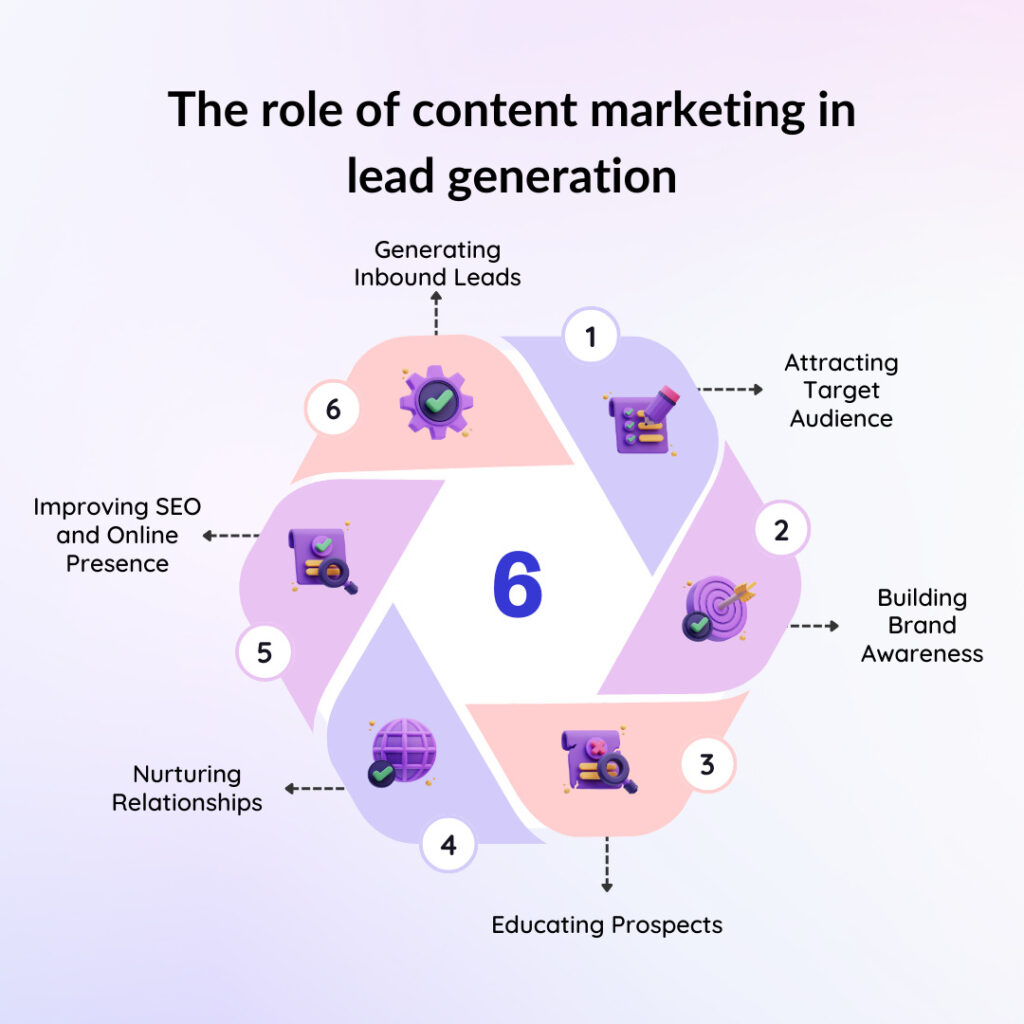
Content Marketing
| Pros | Cons |
|---|---|
| Content marketing involves creating valuable, informative content like blog posts, ebooks, or videos to attract potential customers. It’s great because it helps establish your brand as an authority in your industry and builds trust with your audience. Plus, it can have long-lasting effects, driving traffic and leads even months or years after it’s been published. | It can take time to see results from content marketing, as it relies on building a loyal audience over time. Also, creating high-quality content requires effort and resources. |
Social Media Lead Generation
| Pros | Cons |
|---|---|
| Social media platforms offer a goldmine for lead generation. You can reach a vast audience and engage with them directly through platforms like Facebook, Instagram, LinkedIn, and Twitter. Plus, social media allows for targeted advertising, so you can personalize your messages to specific demographics or interests. | Social media algorithms keep changing, thereby affecting the visibility of your posts and ads. Also, building a genuine following and engagement takes time and consistent effort. |
Email Marketing
| Pros | Cons |
|---|---|
| Email marketing remains one of the most effective ways to nurture leads and drive conversions. It allows for personalized communication directly with your audience, making it easier to build relationships and encourage action. Plus, you can automate much of the process, saving time and effort. | Overdoing email marketing can annoy subscribers and lead to high unsubscribe rates. Also, getting people to open and click on your emails can be a challenge in today’s crowded inboxes. |
Each of these lead generation services has its own strengths and weaknesses, so it’s essential to consider your goals, target audience, and resources before diving in. Experimentation and a willingness to adapt are key to finding what works best for your business.
Key Factors to Consider When Choosing Business Lead Generation Companies
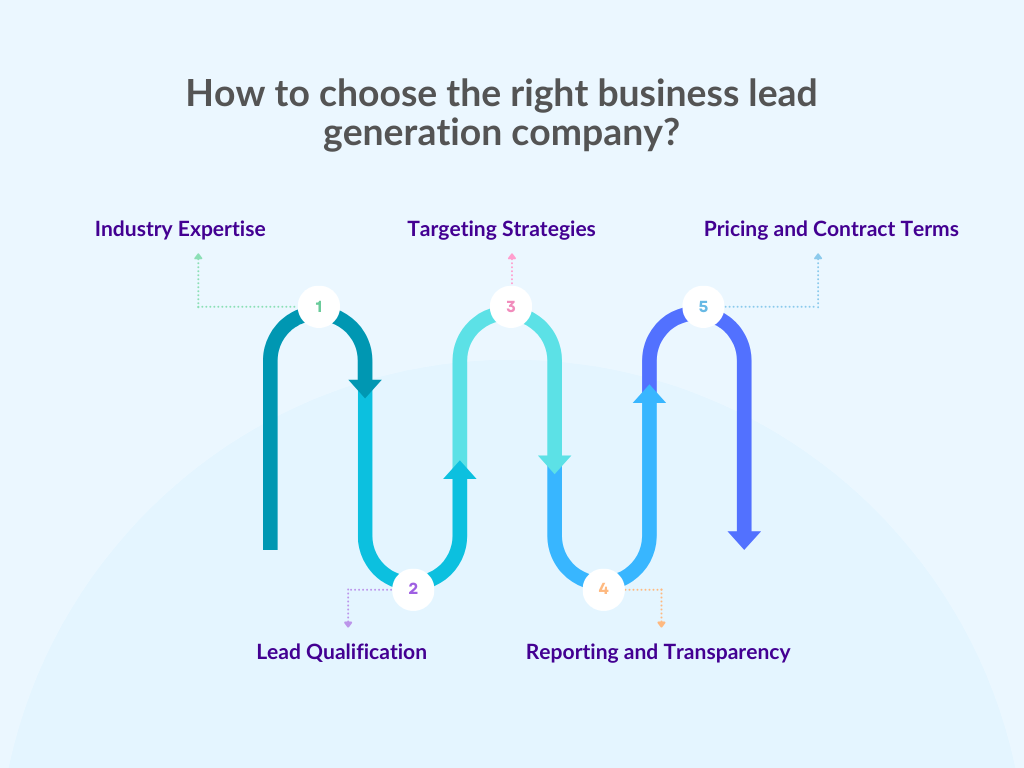
When choosing a lead generation company to help grow your business, it’s important to select one that aligns with your specific needs and objectives. Here’s a detailed explanation of the key factors you should consider:
Industry Expertise:
The effectiveness of a lead generation company can significantly vary based on its familiarity and experience within your specific industry. For instance, companies with industry expertise are more adept at understanding the unique nuances of your market, including its specific challenges and opportunities. As a result, this insight enables them to craft more relevant and compelling messaging. Moreover, they can identify the most promising prospects and engage with them in a way that truly resonates. Therefore, it is crucial to request case studies, client testimonials, or references that demonstrate their experience and success in your industry.
Lead Qualification:
A critical aspect of lead generation is the ability to distinguish between a mere contact and a qualified lead. A qualified lead is a prospect who has been assessed against a set of criteria to determine their likelihood to purchase. This involves more than just having the contact details; it requires understanding the prospect’s needs, budget, authority, and timeline. Inquire about the lead generation company’s process for qualifying leads. Do they use scoring systems, and how do they ensure that the leads passed on to you are ready for engagement? The right company should have a robust qualification process that aligns with your sales team’s requirements.
Targeting Strategies:
The methods and strategies a lead generation company employs to identify and reach potential customers are crucial to your campaign’s success. For instance, effective targeting requires a deep understanding of your ideal customer profile (ICP) and the ability to use this information to segment and target prospects accurately. Consequently, this might involve combining demographic, firmographic, and behavioral data to pinpoint the right audience. Therefore, it is essential to discuss with potential lead generation partners how they plan to target prospects, what tools and data sources they use, and how they adjust strategies based on campaign performance. By doing so, you can ensure their approach aligns with your goals and optimizes your campaign’s effectiveness.
Reporting and Transparency:
Regular and detailed reporting is crucial to monitor the success of lead generation efforts and ensure accountability. These reports should provide clear insights into campaign performance, lead quality, conversion rates, and other key metrics. Transparency about the strategies employed, challenges encountered, and adjustments made are also important for building trust and ensuring alignment. When evaluating a lead generation company, ask about their reporting frequency, the metrics they track, and how they communicate campaign adjustments and insights.
Pricing and Contract Terms:
The cost of lead generation services and the structure of the contract can significantly impact your return on investment (ROI). Pricing models vary widely, from pay-per-lead to monthly retainers or performance-based pricing. Understand the pricing structure, what’s included in the cost, and any additional fees that may apply. It’s also important to review the contract terms carefully, including the duration of the commitment, cancellation policies, and any performance guarantees. Look for terms that offer flexibility and align with your business goals and budget constraints.
By carefully considering these factors, you can select a lead generation company that will act as a valuable partner in achieving your business growth objectives.
Intent Amplify – One of the contenders for business lead generation companies
For B2B companies seeking a data-driven approach to lead generation, Intent Amplify offers a comprehensive suite of services. Founded in 2021, Intent Amplify helps businesses identify high-potential leads and nurture them through the sales funnel.
From account-based marketing campaigns to targeted content creation, Intent Amplify leverages a blend of human expertise and marketing technology to personalize outreach and maximize ROI. Their focus on multi-lingual support ensures global reach, making them a strong contender for businesses aiming to expand their customer base.
Red Flags to Watch Out For
When selecting a lead generation company, being aware of potential red flags can help you avoid partnerships that may not meet your expectations or could potentially harm your business. Here are some critical warning signs to watch out for:
Unrealistic Guarantees:
Be cautious of companies that promise guaranteed results, such as a specific number of leads or conversions within a short timeframe. Lead generation can be unpredictable, and success often depends on various factors, including market conditions, the quality of the offering, and the sales process. Companies offering guarantees may be using aggressive or non-sustainable tactics that could harm your brand in the long run.
Lack of Client Testimonials or References:
A reputable lead generation company should be able to provide testimonials or case studies from satisfied clients. If a company is unable or unwilling to provide references, it may indicate a lack of experience or success in the field. Client testimonials can offer insights into the company’s strengths, work ethic, and the types of results they’ve achieved for businesses similar to yours.
Hidden Fees and Complex Pricing Structures:
Transparency in pricing is crucial. If a company is not clear about its fees or if the pricing structure is overly complex, it may be a sign that there are hidden costs. Ensure that you fully understand what is included in the quoted price and ask about any potential additional fees for services like data access, software usage, or overage charges.
It’s often helpful to engage in detailed discussions with potential partners, asking specific questions about their strategies, processes, and previous campaigns. Additionally, consider reaching out to past or current clients directly to validate the company’s claims and to understand their experiences working with the lead generation partner.
Remember, a successful partnership with a lead generation company is built on trust, transparency, and aligned goals. Taking the time to carefully evaluate potential partners can save your business from setbacks and pave the way for meaningful growth and success.
Conclusion
In conclusion, selecting the right B2B lead generation company, like Intent Amplify, is crucial for the scalability and efficiency of your sales processes. As we’ve explored in this guide, understanding the nuances of lead quality, service offerings, and industry expertise is key to making an informed decision.
With Intent Amplify, you’re not just choosing a service provider; you’re partnering with a growth catalyst dedicated to amplifying your sales outcomes. We invite you to delve into what makes Intent Amplify stand out in B2B lead generation. Learn how our tailored solutions can be the foundation of your business’s growth.
FAQs:
How do business lead generation companies find leads?
Business lead generation companies use a mix of digital marketing tactics, data analysis, content marketing, SEO, social media engagement, and sometimes outbound marketing methods like cold calling and email campaigns to attract and identify potential leads.
Can lead generation companies guarantee sales?
While lead generation companies can significantly increase your pool of potential customers, the conversion of leads into sales depends on many factors, including your sales team’s effectiveness, the quality of your product or service, and market demand.
Are there different types of leads that lead generation companies provide?
Yes, leads can be categorized as cold, warm, or hot, depending on their previous interactions with your brand and their level of interest in your offerings. Many lead generation companies may also offer more detailed categorization based on the lead’s position in the sales funnel.
What should I expect to pay for the services of a lead generation company?
Pricing can vary widely based on the services provided, the quality and quantity of leads, and the specific needs of your business. Few companies charge a set fee, while others may use a pricing model based on the number of leads generated or a commission on sales.
How do lead generation companies ensure the quality of the leads?
Quality assurance methods can include lead scoring, where leads are evaluated based on their actions and demographics, and lead nurturing, where leads are engaged with relevant content and interactions to gauge their interest level.
Can I customize the services provided by a lead generation company?
Many lead generation companies offer customizable service packages where you can choose specific strategies and focus areas that align with your business goals and target audience.
